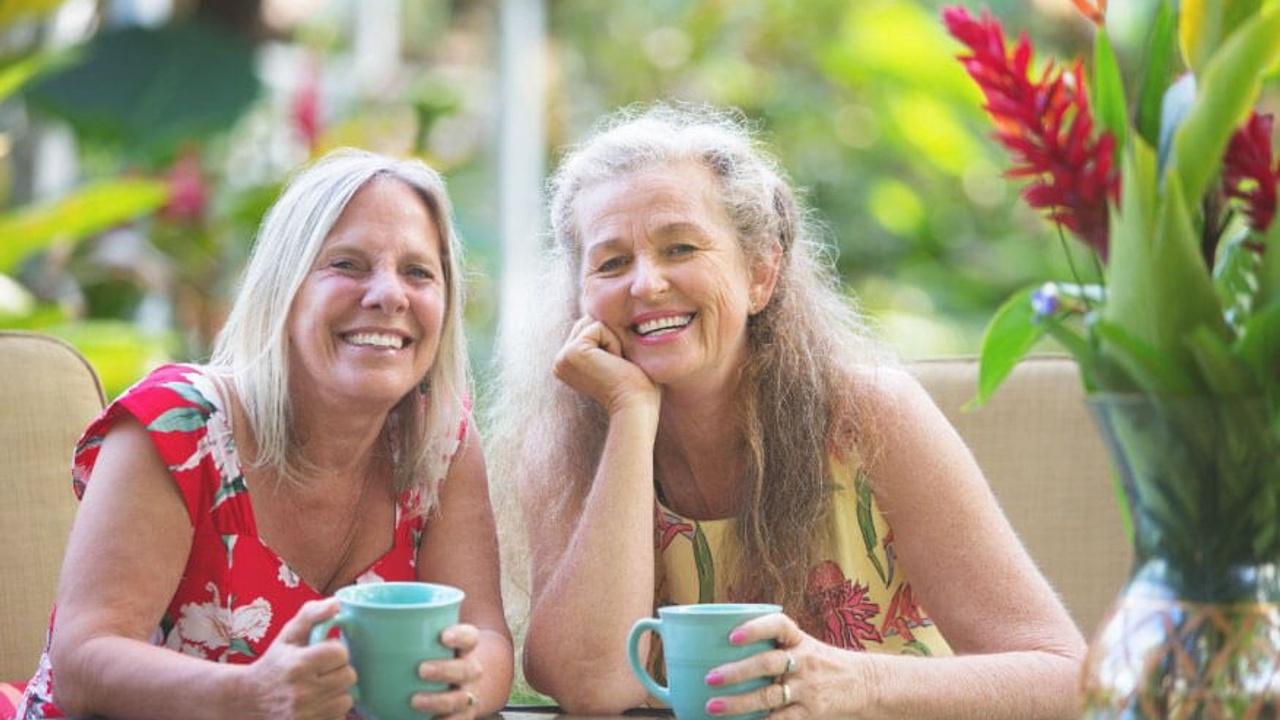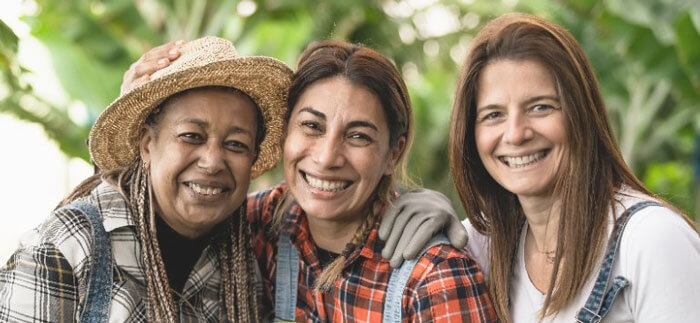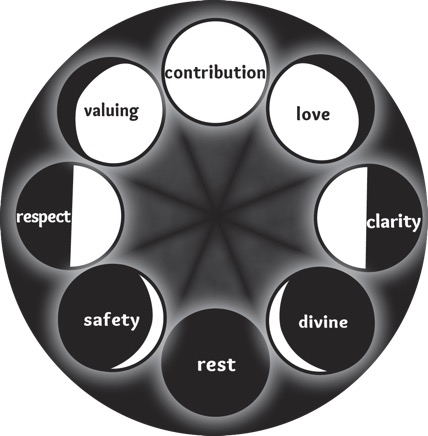Towards a Needs Psychology — 3 Wise Woman Principles

by Corinna Wood
Way back when I first saw a list of basic human needs in psychology and nonviolent communication (NVC), I was not happy about it.
In fact, I felt angry. Why would they be called needs? With so many of us living with these so-called needs unmet, how could they be "needed"?
And it also piqued my curiosity. I wanted to understand more . . .
What are the impacts of unmet needs in our lives?
How might our lives be different when those needs were met?
Won't we naturally have unmet needs as well as met needs?
What would emotional healing from a needs-based perspective look like?
 Questions like these ended up becoming a lifelong study for me.
Questions like these ended up becoming a lifelong study for me.
I now consider “needs psychology," aka needs-based psychology, to be the study of the psychological impacts of honoring our needs and the psychological factors that impact how we choose to meet our needs.
Does that sound dry? It's nothing but! Let's dive into the juicy details . . .
Table of Contents
- The Wise Woman Needs Wheel
- 3 Wise Woman Principles of Needs Psychology
- Towards a Needs-Based Psychology
The Wise Woman Needs Wheel
 As an herbalist and teacher in the Wise Woman Tradition, I turned to the natural world to help me understand the concepts of needs.
As an herbalist and teacher in the Wise Woman Tradition, I turned to the natural world to help me understand the concepts of needs.
Each season of nature has a different energy.
For example, during the dark months around winter solstice as the plants are drawing their energy back into their roots, we naturally feel a strong pull towards rest.
I took the long (and in my opinion, rather unwieldy!) list of needs in psychology and regrouped them—according to the natural cycles of the seasons and the moons.
 Thus I created the Wise Woman Needs Wheel which became the foundation for my own emotional healing.
Thus I created the Wise Woman Needs Wheel which became the foundation for my own emotional healing.
In short, I've organized the basic needs into eight main categories: rest, safety, respect, valuing, contribution, love & connection, clarity, and divine connection.
Each of those categories contains a group of additional related needs.
Let's explore a needs-based psychology through looking at three of the central principles.
You're welcome to grab your own free copy of the full Wise Woman Needs Wheel (pdf). 
1) Developing needs literacy
As a woman, you've likely been socialized to put the needs of others before your own. You may have been raised to be a caretaker in the role of mother or a supportive friend. Most women I know are highly tuned towards the needs of others—this is part of the fabric of our lives.
However, when it comes to your own needs, it’s a different story.
You may take pride in not having needs, having been told that to have needs is to be weak or somehow not fully competent. Perhaps you were shamed for expressing what you truly felt.
In the short term, repressing your needs may seem like a workable solution. Yet over time, that often leads to exhaustion—physically, emotionally and relationally. You find yourself just going through the motions and feeling disconnected with yourself.
Developing a healthy needs psychology begins with embracing your own needs and recognizing that all humans have these needs whether they are expressed or not.
The need to contribute your gifts to the world
 First of all, tuning into your needs is not selfish.
First of all, tuning into your needs is not selfish.
The truth is, we all naturally want to contribute our gifts to make the world a better place. Get this . . .
Contribution is one of the most important human needs.
When your needs for rest, safety, respect and valuing are being met, you are able to contribute to the world from a place of your cup filling over.
If you are feeling exhausted and depleted, that's a signal that your needs aren't being met. It can be difficult or even impossible to give to others from this state. Giving attention to your own needs, allows you to contribute more fully and joyfully.
Identifying met and unmet needs
 Your needs provide you with an internal compass and the more you are able to tune into them, the more you are able to use them as a guidance system.
Your needs provide you with an internal compass and the more you are able to tune into them, the more you are able to use them as a guidance system.
Ask yourself, what needs stand out as being met or unmet? Think of a situation when you recently felt upset or frustrated . . . what needs were not met in that situation?
Just being able to identify and name your needs is a surprisingly powerful step in healing emotionally.
 Of course, not all of your needs will be met all of the time. Part of the wholeness of light and dark in life is that we have some needs that are met and others that are unmet. Being able to connect your feelings to unmet needs can help you to make choices moving forward.
Of course, not all of your needs will be met all of the time. Part of the wholeness of light and dark in life is that we have some needs that are met and others that are unmet. Being able to connect your feelings to unmet needs can help you to make choices moving forward.
Honoring your needs means not only acknowledging them, but also mourning when they are unmet. As you extend self-empathy and compassion towards yourself, you may find you are more compassionate with others.
One of my students, Tarah, shared how she used to feel bad, but didn’t know why. Without being able to name what wasn’t working, she could not shift to something that worked better for her. By tuning into her needs, she gained a language for things she had been feeling, but did not have words for.
2) Practicing healthy discernment about how much to share with others
 In my work with women, I emphasize that paying attention to your own feelings and needs can help you better understand your own truth and your own reality. Women naturally are drawn to weave and connect through sharing experiences.
In my work with women, I emphasize that paying attention to your own feelings and needs can help you better understand your own truth and your own reality. Women naturally are drawn to weave and connect through sharing experiences.
However, before sharing what you learn with others, ask yourself, "How safe is my environment?"
A helpful way to tune into those answers is to pay attention to what you're experiencing in your body in the context of relating to others . . .
What physical sensations do you have when you are together or when you think about being together? Do you feel tension in your belly or in your chest? Do you feel drained after spending time together? Scan your body to see if it is giving you warnings about the relationship.
Choose wisely where to bare your soul
Remember, being open hearted does not mean you need to bare your soul to everyone.
Try asking yourself, “are my needs for safety, respect, valuing and clarity being met?” If these are not being met, proceed with caution around how deeply you share—including your needs.
 This may run counter to what you may have heard about sharing of needs as a way to build intimacy.
This may run counter to what you may have heard about sharing of needs as a way to build intimacy.
Certainly, sharing your needs out loud is an invaluable tool for deepening intimacy in relationships in which your sharing is embraced. However, if the relationship lacks safety—or your words are often met with criticism—sharing too deeply can actually expose you to more hurt and re-wounding.
So choose wisely where you bare your soul. Criticism and toxic relationships can also reinforce old beliefs which underlie choices that you make in relation to your needs.
3) Exploring underlying beliefs that inform your choices
Once you are able to identify your needs—particularly those that are unmet—you can begin to explore the choices you are making to meet those needs. As Nonviolent Communication (NVC) teaches, there are an infinite number of strategies to meet your needs. If your needs are not being met, you can choose different strategies.
But if your strategies are ineffective over and over again, then what? Then it is time to look at your underlying beliefs.
Your beliefs about yourself shape how you move through the world, your perspective on how the world operates and the choices you make. This includes the choices you make to meet your needs.
 As an herbalist and earth-loving woman, I know how important it is to go to the roots. The holistic approach to healing. That means digging deeper to understand what beliefs are informing your choices.
As an herbalist and earth-loving woman, I know how important it is to go to the roots. The holistic approach to healing. That means digging deeper to understand what beliefs are informing your choices.
Your beliefs do not form in a vacuum. They develop in the context of the messages you heard as a youngster, the environment that you grew up in, and institutions in the larger community.
Among women, I have found some of the same common underlying beliefs expressed: “Something's wrong with me," “I'm not enough," or “I'm too much."
Often the sources for these messages come from traumatic experiences as a young girl or from what I consider to be internalized oppression. For example, sadly, most girls and women feel embarrassment or shame about their own bodies.
Wondering where to start? Grab my free guide on 5 Steps to Create a Space for Self-Healing (pdf) to support your journey of healing and wholeness.
Trauma and difficult childhood experiences
 If you grew up in a traumatic situation or an environment of abuse, it's not uncommon to be drawn to unhealthy relationships as an adult because those relationships feel familiar.
If you grew up in a traumatic situation or an environment of abuse, it's not uncommon to be drawn to unhealthy relationships as an adult because those relationships feel familiar.
Even if the relationships are not meeting your needs, you may feel attracted and experience a rush of adrenaline and dopamine, which can feel pleasurable (yes, even if your needs are not met).
This can be confusing because once the rush of neurochemicals subsides, you are left with unmet needs. This cycle of pleasure and unmet needs can reinforce negative messages you have about yourself.
Internalized oppression and our beliefs
 When looking at the beliefs that underlie your life choices, it is important to be aware of internalized oppressions.
When looking at the beliefs that underlie your life choices, it is important to be aware of internalized oppressions.
As a woman living in a patriarchal society, you've probably internalized societal messages based in misogyny.
For women of color, there is an added layer of day-to-day experiences of systemic racism and micro-aggressions.
A woman-centered approach to needs psychology involves exploring 1) how your beliefs shape the choices you make and 2) how your experiences as a woman may have formed beliefs that no longer serve you.
Understanding and excavating those beliefs is a critical part of choosing strategies that support you.
Transforming old beliefs
Once you have identified your core beliefs, you can become more conscious of how the beliefs are impacting the choices that you make. You can begin to evaluate which beliefs are leading to healthy choices and which may not be serving you. You can then work to transform those old beliefs and replace them with healthy self-loving beliefs.
You can begin to evaluate which beliefs are leading to healthy choices and which may not be serving you. You can then work to transform those old beliefs and replace them with healthy self-loving beliefs.
You may be wondering if affirmations are the answer.
Yes and no. Affirmations are one strategy.
Yes, they can be a helpful tool in transforming beliefs—as long as the affirmations are believable.
Your old beliefs are deeply rooted with well worn pathways in your brain to reinforce them. Creating new pathways will take time. It is easier and more effective to transform old beliefs incrementally, in steps.
If you're experiencing depression or a heavy heart, and you begin repeating an affirmation such as “I feel happy, free and light”—when you really don’t—your brain notices the disconnect.
Your mind will ask, “Why not?” The answer the brain finds most often is an old belief, such as, "Something's wrong with me."
Sadly, the end result can be reinforcing the old mistaken belief instead of cultivating a new healthy self-loving belief.
However if the affirmation is a smaller step, such as “I am beginning to feel happier, freer and lighter," the gap between what you feel and what you are saying is easier to bridge and is more believable for your brain.
There is not a significant contradiction, so the brain will more readily accept your affirmation as true.
Towards a needs-based psychology
Today when I see a list of needs in psychology, I no longer get angry.
Now I get excited—because I know they provide a structure and framework for healing emotionally and living more fully. Tuning into your needs opens the door to your own inner guidance.
The first step is to develop needs literacy, to recognize and identify needs that are met or unmet in your life. You will find a powerful language to describe what you are experiencing.
As you go deeper into your own truth and reality, use discernment to determine when and where to share. Take care when you find yourself in settings or relationships that foster criticism.
 As you tune into your needs, and notice that some are consistently unmet, dig deeper into the underlying beliefs.
As you tune into your needs, and notice that some are consistently unmet, dig deeper into the underlying beliefs.
By looking at the roots of those beliefs, you can begin to shift those which no longer serve you.
The journey to wholeness is not an easy—emotional healing is both incremental and layered.
Having a compass to navigate your way helps. The good news is that the compass lives inside and centers around your needs. Let your needs guide your way.
I'm rooting for you, sister!
___________
Spread the wise woman ways! Link to this article from your website or share with your friends using this button~
Comments ~ what stands out for you today?







